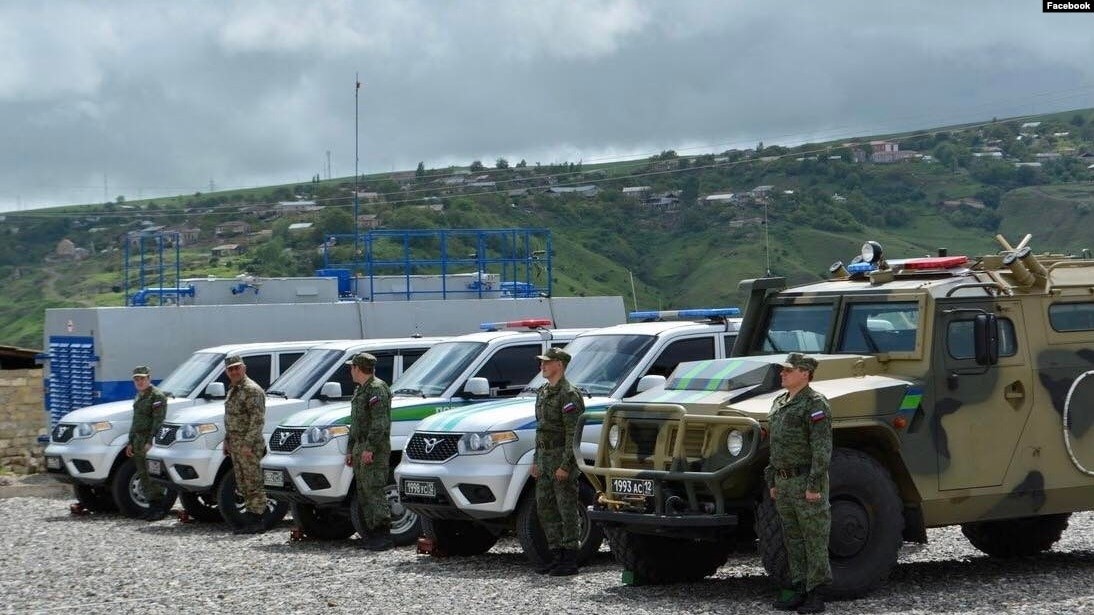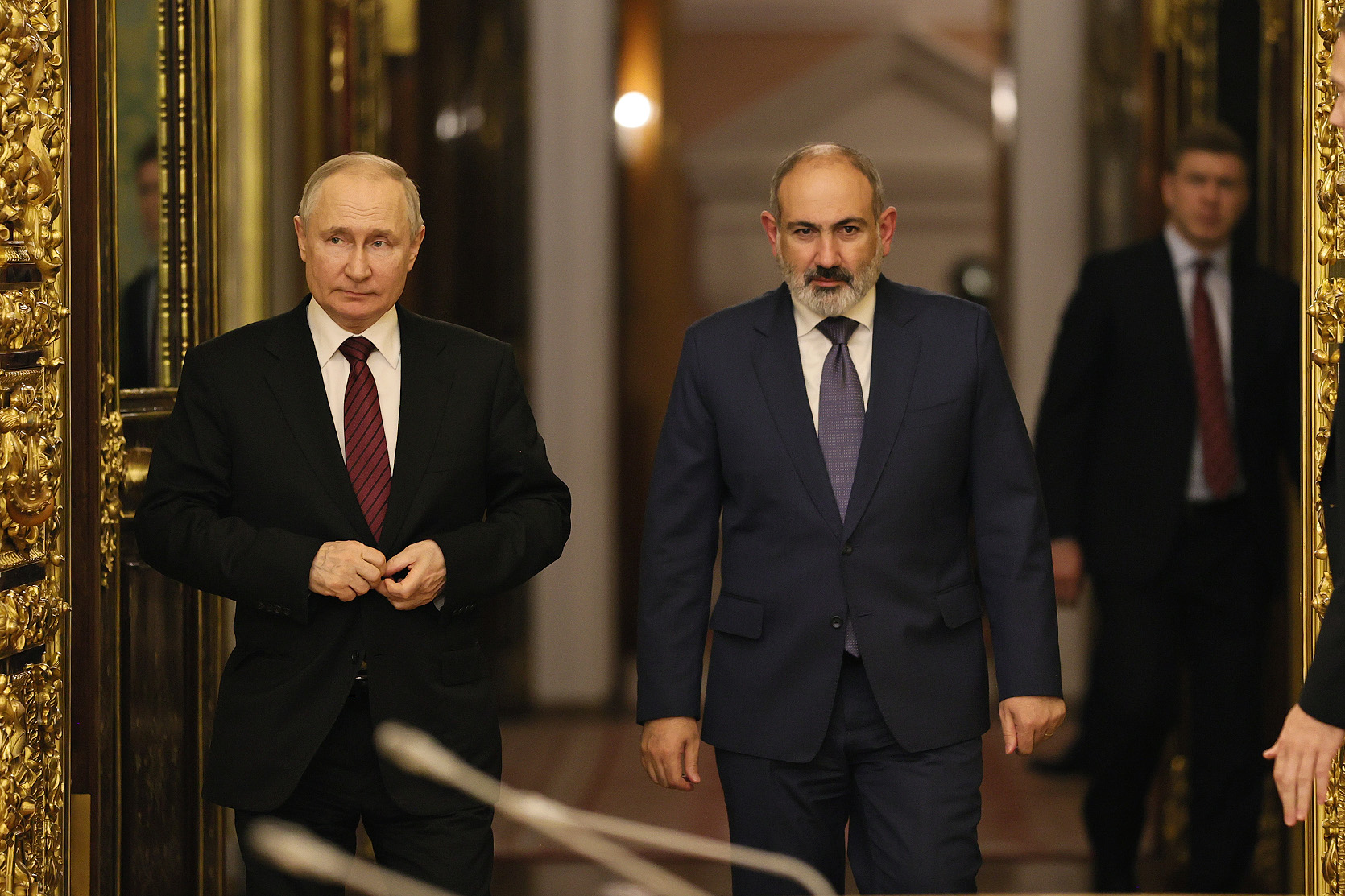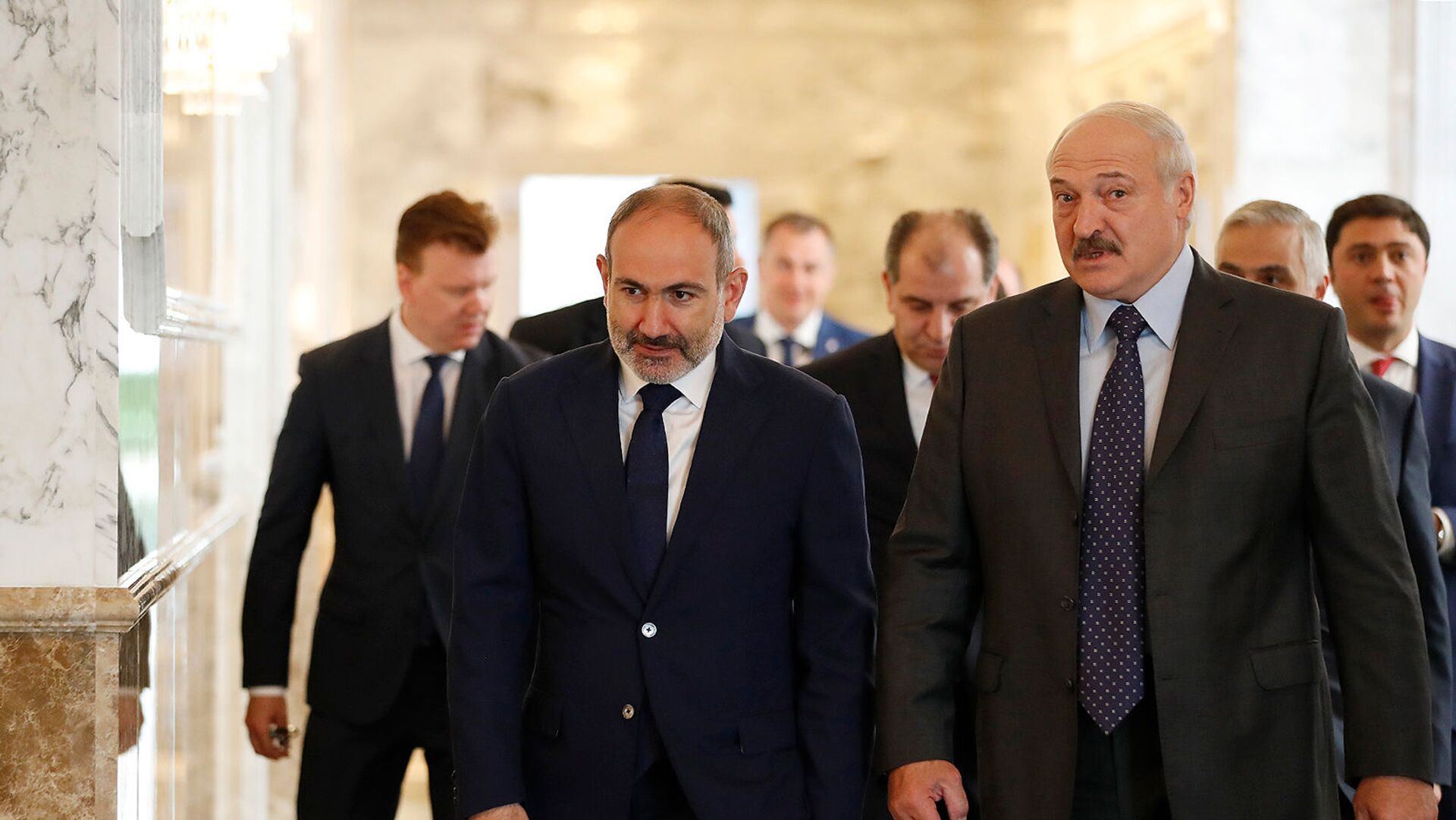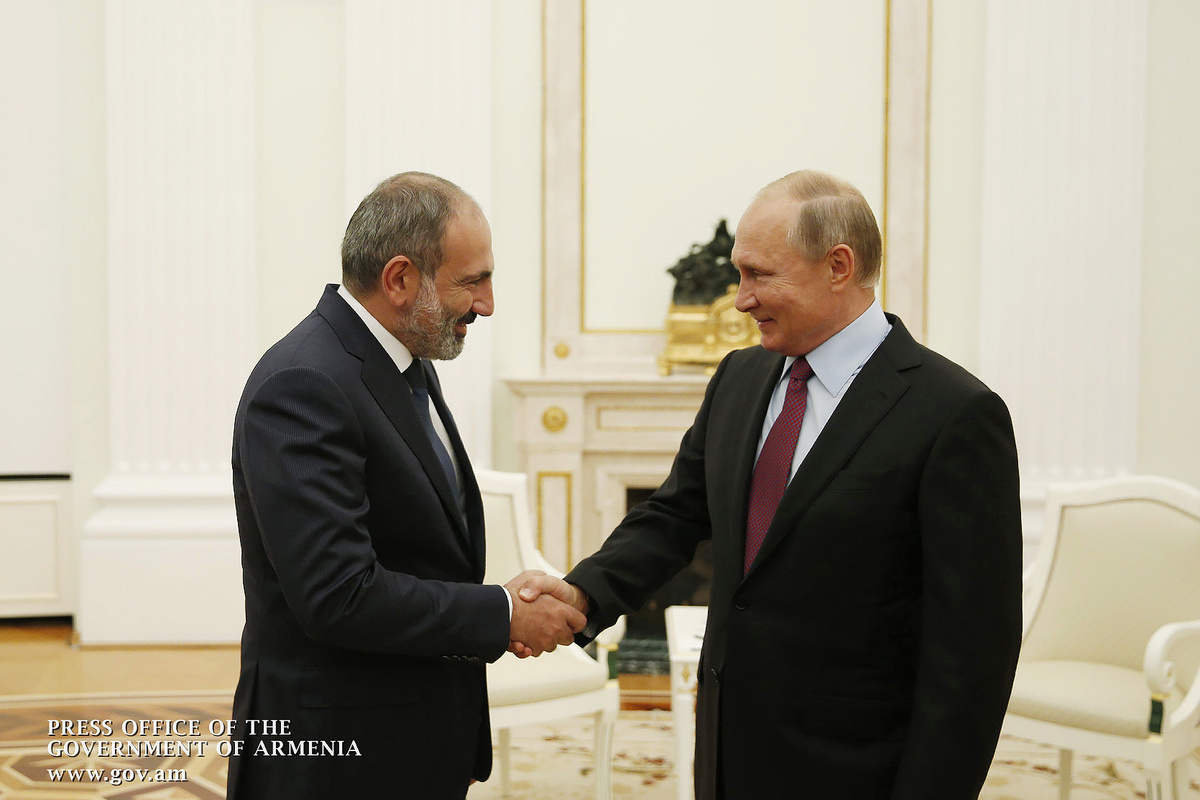Opinion from Yerevan: "A Russian-Azerbaijani tandem is forming"
Russian-Azerbaijani relations
In Armenia, discussions about the recent negotiations between Putin and Aliyev continue. Experts are particularly focused on statements that were simultaneously made in Moscow and Minsk. Belarusian president Alexander Lukashenko remarked, “Who needs the Armenians besides us?”
Meanwhile, the Russian foreign minister accused Armenia of “sabotaging” the trilateral agreements, specifically referencing the agreement on reopening regional communications. This includes a road through Armenian territory connecting Azerbaijan with its Nakhchivan exclave. Russia intends to control this route, but Armenian authorities have declared they have no intention of relinquishing their sovereign rights over their territory.
Armenian analysts believe that the discussions in Baku have once again brought the discourse around the so-called “Zangezur Corridor” to the forefront.
Political analyst Areg Kochinyan told JAMnews that the “Zangezur Corridor” is one of the priorities for the Russian-Azerbaijani tandem, though not the only one. He noted that a new security architecture is emerging in the South Caucasus, but the Russia-Azerbaijan partnership will not resemble the former Armenia-Russia alliance.
“Azerbaijan is capable of ensuring its own security and essentially uses Russia, for example, to balance Turkey, China, the West, and possibly other power centers. This is a very significant difference,” he emphasized.
Key details of recent events and statements, along with the political analyst’s commentary, highlight the evolving dynamics in the region.
- Putin’s silence: Why is he traveling in the Caucasus while the Ukrainian Army advances deep into Russia?
- Ukraine’s bold gamble: Early impact of Kursk offensive
- “Both a victorious and defeated Russia pose a threat to Armenia”: A view from Yerevan
Putin’s plans announced in Baku
“If we can do anything to facilitate the signing of a peace agreement between Azerbaijan and Armenia, resolve the issues of border demarcation and delimitation, and unblock communications and economic ties, we would be very pleased,” Putin stated.
Following the meeting between the presidents of Azerbaijan and Russia, the Kremlin released a joint statement emphasizing:
“The parties underscored the importance of the trilateral statement from November 9/10, 2020, as well as subsequent agreements reached at the highest level, to ensure security and sustainable development in the South Caucasus. The Russian Federation reaffirmed its readiness to continue facilitating the normalization of relations between the Republic of Azerbaijan and the Republic of Armenia.”
Thus, Russia declared its interest in mediating and providing a platform for negotiations. However, Armenian experts believe that Yerevan is not inclined to return to this format. On August 23, Putin shared information about his visit to Baku with the prime minister of Armenia. The details of this conversation remain undisclosed.
Russian-Azerbaijani relations
Yerevan and Moscow accuse each other of sabotage
Russian foreign minister Sergey Lavrov stated in an interview with Russia’s Channel One that Moscow supports the swift signing of a peace treaty between Armenia and Azerbaijan and the unblocking of communications:
“Unfortunately, regarding the communications through Armenia’s Syunik region, it is the Armenian leadership that is sabotaging the agreement, which bears the signature of prime minister Nikol Pashinyan. It’s difficult to understand the rationale behind this position.”
The Armenian Foreign Ministry responded to Lavrov’s statement:
“These inaccurate, evidently biased, and often disrespectful comments from various Russian Foreign Ministry officials regarding Armenia are unfortunately nothing new, and we have long ceased to react to them.
However, the statement by the head of Russia’s foreign ministry is not only deeply regrettable but also casts doubt on Russia’s constructive involvement in the process of normalizing relations between Armenia and Azerbaijan.
The foreign minister of a country that once assumed the role of mediator and signed the November 9, 2020, statement—based on which it deployed peacekeeping forces in the region—cannot ignore that every key point in this document has been violated, despite Russia’s signature and its participation and responsibility in the processes outlined in the statement. We also believe that the Russian foreign minister is well aware that, apart from public documents, Armenia is not a party to any other agreement and, therefore, cannot sabotage them.“
The Armenian Foreign Ministry also reminded that, under the government’s “Crossroads of Peace” project, the unblocking of regional communications “could take place at any moment”:
“The ‘Crossroads of Peace‘ project has received positive feedback from international partners. We urge our colleagues in the Russian Foreign Ministry not to sabotage its implementation and not to undermine efforts to achieve peace in the South Caucasus with biased statements.”
Russian-Azerbaijani relations
Another controversial statement by Lukashenko
In an interview with the Russian TV channel, Belarusian president Alexander Lukashenko stated:
“Who needs Armenians besides us? No one. Let them develop their economy and rely on their own resources. What France or Macron? Tomorrow he’ll be gone, and everyone will forget about Armenia.“
Lukashenko criticized some post-Soviet countries for wanting to take from Russia without giving anything in return:
“But it doesn’t work that way. Let’s stick together. The time is coming when you’ll have to turn to Russia for support. In a crisis, like what happened in Kazakhstan, everyone turns to Putin for help.”
“Get out of Armenia” protest
Following Lukashenko’s statement, a protest took place in front of the Belarusian Embassy in Armenia. Members and supporters of the “For the Republic” party threw eggs, potatoes, and tomatoes at the embassy building while chanting, “Get out of Armenia.”
The Democratic Forces Platform of Armenia, which includes the “For the Republic” party, issued a statement demanding that the Armenian authorities:
- “Immediately sever diplomatic relations with Belarus until the dictator Lukashenko steps down.
- Declare the Belarusian ambassador to Armenia and all other members of the embassy’s diplomatic staff persona non grata, giving them three days to leave Armenia.
- Terminate all bilateral agreements with Belarus.
- Ban any Belarusian officials from entering Armenia, including for international events, and prohibit visits by Armenian officials to Belarus.
- Consider it unacceptable to remain in the same military alliance, economic, and customs zones with Belarus, and immediately withdraw from the CSTO, EAEU, and CIS”.
Russian-Azerbaijani relations
Commentary
Political analyst Areg Kochinyan observes the formation of a Russian-Azerbaijani tandem:
“What’s happening is part of a broader context—Russia is realigning in our region, gaining a new strategic partner or ally. Russia is gradually distancing itself from Armenia and drawing closer to Azerbaijan.”
The analyst believes that Moscow and Baku’s interests align on many issues. He points out, for example, the “sale and resale of energy resources through Azerbaijani territory.” Beyond shared interests, he also emphasizes the “similarity of regimes” as a significant factor:
“Both are established dictatorships, ranking among the leading non-free states. This can’t be said of Armenia or Georgia.”
According to the political analyst, unlike the alliance between Armenia and Russia, the Azerbaijan-Russia tandem will face “much more serious limitations”:
“Baku and Moscow’s interests do not align on all fronts. And Azerbaijan doesn’t have the same level of dependence on Russia that Armenia once had.”
Commenting on Russia’s potential involvement in the resolution of Armenian-Azerbaijani relations, the analyst stated that the Russian side will do everything possible to continue negotiations on its own terms. At the same time, he said that Azerbaijan doesn’t need this but doesn’t object, knowing Armenia will certainly oppose it:
“Armenia’s position on this issue is quite clear. Armenia will not agree to negotiations in Moscow because we’ve already seen at least one round of such talks. There’s no need for a repeat.”
Kochinyan views the escalation of Armenian-Belarusian relations as a “false agenda.” He is confident that the problem lies not with Belarus, but with Russia, as Moscow is the security partner:
“You know what it looks like? Sparring with Belarus seems like an attempt to blow off steam or redirect emotions.”
The political analyst emphasizes that the real target of demands from civil society—such as leaving the CSTO, withdrawing from Russian-led integration processes, and reassessing alliances—is directed at Russia, not Belarus.
Russian-Azerbaijani relations






















